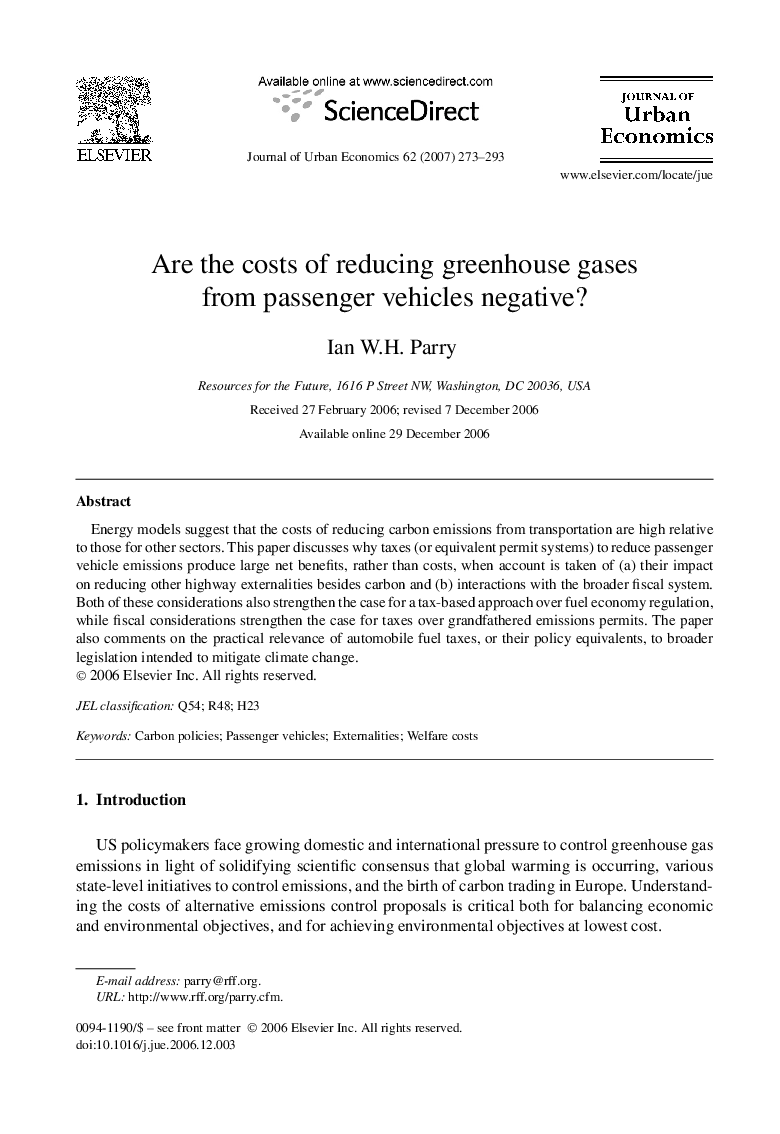| Article ID | Journal | Published Year | Pages | File Type |
|---|---|---|---|---|
| 970840 | Journal of Urban Economics | 2007 | 21 Pages |
Energy models suggest that the costs of reducing carbon emissions from transportation are high relative to those for other sectors. This paper discusses why taxes (or equivalent permit systems) to reduce passenger vehicle emissions produce large net benefits, rather than costs, when account is taken of (a) their impact on reducing other highway externalities besides carbon and (b) interactions with the broader fiscal system. Both of these considerations also strengthen the case for a tax-based approach over fuel economy regulation, while fiscal considerations strengthen the case for taxes over grandfathered emissions permits. The paper also comments on the practical relevance of automobile fuel taxes, or their policy equivalents, to broader legislation intended to mitigate climate change.
